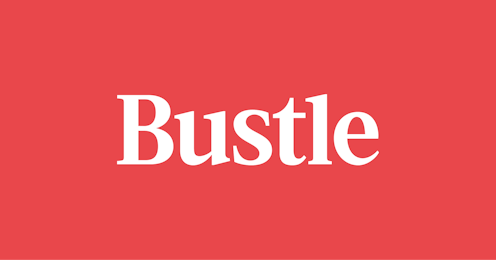Life
This Mom Is Getting Called Out For Saying She Didn't Want A Fat Person Taking Care Of Her Daughter

A UK mother is facing strong backlash after she penned an op-ed for the Daily Mail earlier this month. In her article, journalist and mom Hilary Freeman said she decided not to enroll her daughter in a nursery school because some of the staff were obese, and the internet is rightfully incensed over her fatphobic comments.
Freeman described one of the nursery assistants as moving "slowly and breathlessly," and went on to question if the woman could effectively do her job, and whether her weight would influence Freeman's daughter.
No sooner was Freeman's piece published than people began to speak out against her regressive and fatphobic comments. "Teaching your children not to judge anyone on face value would be a far better attribute," one commenter wrote. Freeman also says she was dismissed from her role as an advice columnist at another newspaper because of her "attitude" in the op-ed.
This week, Freeman wrote a second article describing the push-back she's received. "I have variously been called a ‘fat shamer’, told I am a terrible mother, accused of being shallow, judgmental, nasty and dangerous. And those are the least offensive insults."
In both of her pieces, Freeman argued body positivity and fat acceptance have "gone too far," and that these extremely crucial movements are now "an excuse for the severely obese to celebrate their bodies," a celebration she sees as harmful.
"Activists say that ‘fat is beautiful’ and being obese isn’t a problem," she wrote. "Anyone who points out it’s not a good thing to be so overweight is condemned. Telling a woman she should think about losing weight for her health is, apparently, now ‘anti-feminist’."
I'll give you a few moments to scream into a pillow before we continue.
Freeman's arguments are offensive, certainly. But they're also lazy and unoriginal. She claims to be voicing an unpopular opinion, as if fat people aren't openly shamed and criticized for their bodies every single day. She adopts the same afflicted tone employed by so many fat-shamers — a tone that suggests she is a martyr of sorts, bravely stepping forward to disparage other people's bodies; a tone that says "My criticism of your body is harder on me than it is on you." She claims fat acceptance has gone "too far," even as fat individuals still face significant prejudice and discrimination in the workplace.
None of Freeman's points are new or brave — they are the same flimsy, tired arguments that have been used to justify shaming fat people for decades.
But what is perhaps even more infuriating than her lack of creativity, is how Freeman attempts to dodge the "fat-shamer" label.
In her second piece, she said she finds many fat people attractive, and that her concern is purely health-related — that free, unsolicited, uninformed concern to which fat people are so often subjected. And yet, in her first article she wrote: "Rolls of fat are not attractive — I shouldn’t be scared to say that." She also made puns about weight ("on a larger scale — pun intended") and described fat friends using tired stereotypes like "sharing fries and tubs of Haagen-Dazs."
Freeman wants to have it both ways when it comes to fat shaming. She wants to be able to mock fat people, while also be praised for 'caring' about their health. But Freeman can keep her crocodile tears about the health risks of obesity. Not only are they disingenuous, they do the very opposite of what she is supposedly trying to accomplish. A study from the University of Pennsylvania earlier this year found that fat-shaming has serious health consequences, and that those who "internalize negative stereotypes" about weight and fatness have elevated stress levels, and are at a far greater risk of heart disease, strokes, diabetes, and depression.
In the days following her op-eds, Freeman has said her intention was not to offend anyone, but to generate debate. But offering every human, regardless of their size, respect and dignity, shouldn't be something that's up for debate.